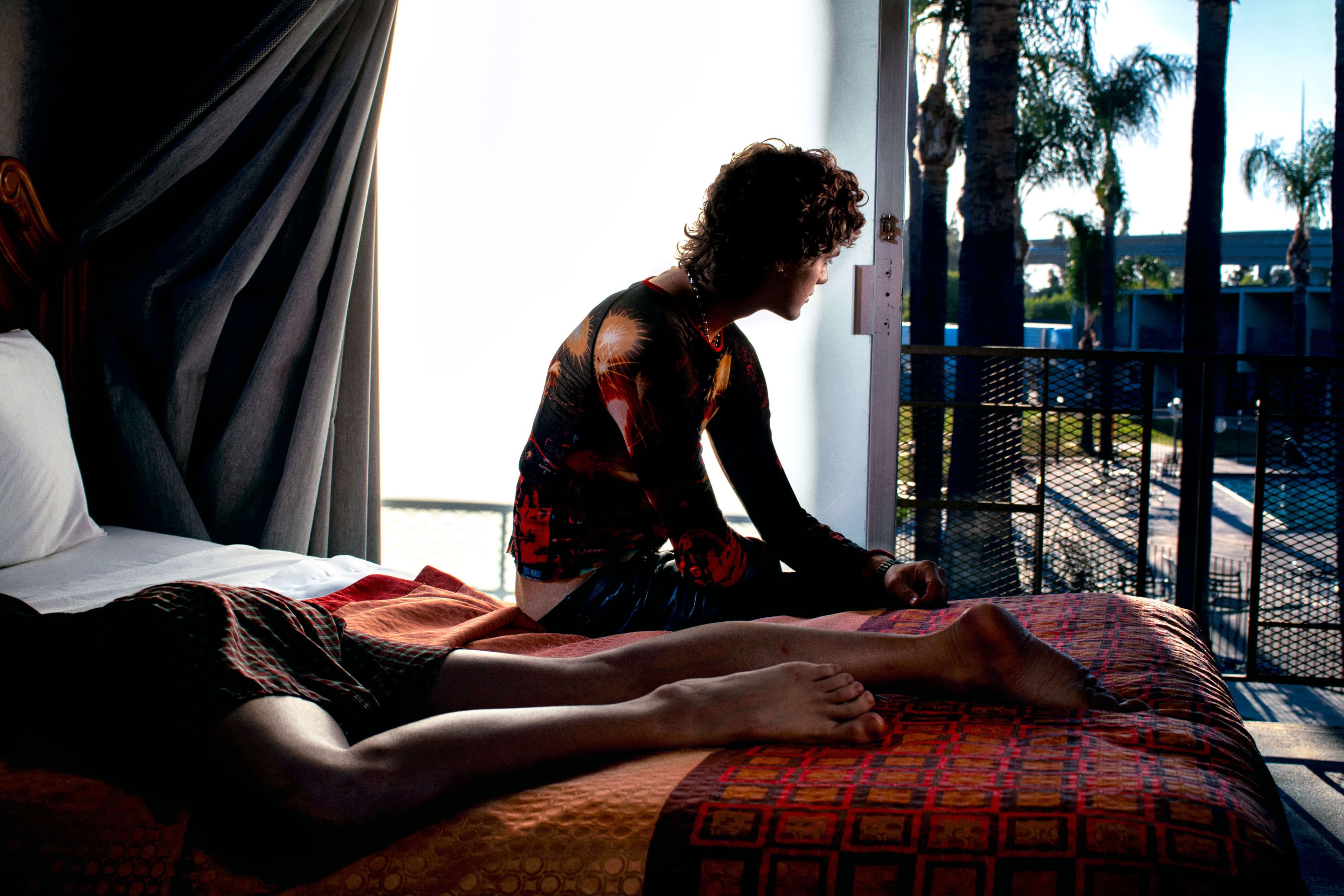
Vintage top by Jean Paul Gaultier. Jeans by Balenciaga. Necklace, stylist’s own.
Fin Argus Expects More
In today’s oversaturated television landscape, reboots have become a favorite solution for executives looking to fill their lineups in the competition for viewers. While the vast majority of these offer little more than superficial retreads of beloved intellectual property, a few stand out by reimagining the original material, often broadening their scope by inviting in new perspectives. Peacock’s Queer as Folk, which was released this summer, offers a standout example of the power of a more comprehensive lens. Whereas Russell T Davies’s original British series from 1999 and the American adaptation it spawned from 2000 to 2005 focused largely on white, cisgender, gay men, the latest version welcomes transgender, nonbinary, and disabled voices, as well as many characters of color, vastly expanding its loving yet critical gaze to the wider queer community.
Developed by Stephen Dunn, this new Queer as Folk shifts its setting from Manchester or Pittsburgh to vibrant New Orleans, a city famed for its colorful character and its resilience in the face of disaster. The series opens with a tragedy of its own: a shooting at the fictional queer club Babylon during the debut drag performance of non-binary high school student Mingus, played by Fin Argus. Halfway through a lip sync to Grimes’s “Kill V. Maim,“ the murderer enters and releases a torrent of bullets, one of which strikes Devin Way’s Brodie in the arm after he rushes the stage to save Mingus’s life, setting off their tempestuous relationship. “I was thrilled to be a part of this legacy of explicit queer storytelling,“ says Argus, noting that the show has not only brought more queer voices to the screen, but also relied on them both in front of and behind the camera. “It felt good to be a part of something that was queer-led and substantiated by a fully queer cast.“
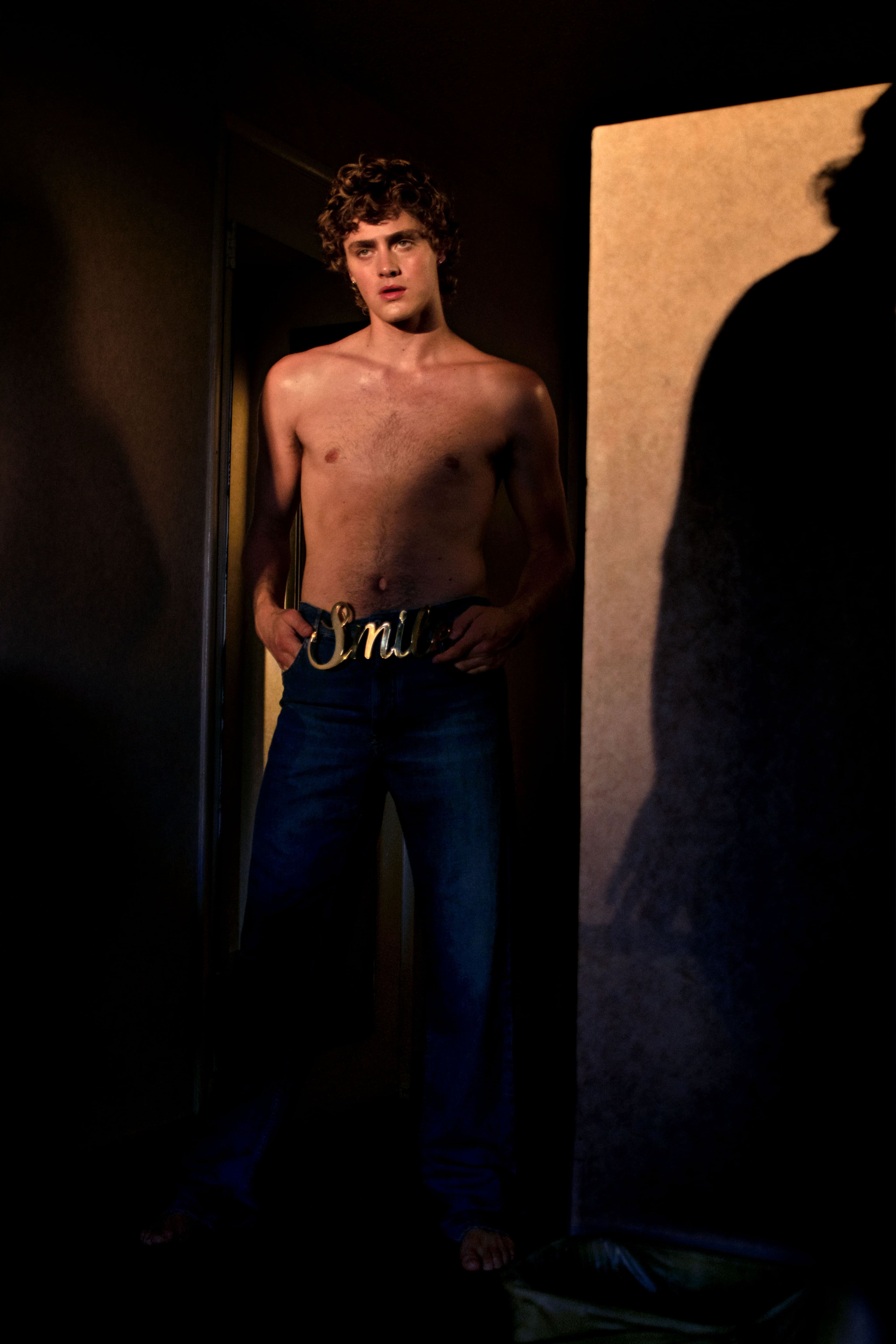
All clothing by Loewe
Alongside Mingus and Brodie, who is cisgender and gay, Queer as Folk threads together the lives of Brodie’s best friend Ruthie, a transgender woman who is raising a pair of twins with her non-binary partner and also happens to be Mingus’s English teacher; his ex, Noah, who loses his current lover during the shooting; and his brother Julian, who is also gay and has cerebral palsy. Some critics have complained that the show seems to be trying almost too hard to be inclusive, but Argus counters that it is merely reflective of the full breadth of the LGBTQ+ community. “The people that we’re seeing on screen in this new iteration of Queer as Folk, that is the queer community that I’m surrounded by and that is my daily life experience,“ they argue. “To be able to have that story brought to life and have that be normalized and have people be able to see that and know that that is a possibility and a reality is liberating, healing, and exciting. Those are the types of things that I want to see, so being a small part of it was a huge gift.“
Mingus was the first queer role for Argus, who began acting as a child and first came to prominence playing a terminally ill musician in the 2020 film Clouds. The show was revelatory for them, both in revealing another side of their own experience and offering a vision of what future opportunities could bring. “I wasn’t nearly as self-actualized when I was seventeen,“ they laugh. “I was out, but I was not as far along as Mingus is on their journey of gender, and being able to play this alternate-universe version of myself was very cool.“ Argus, who is twenty-four, says that Mingus offered an opportunity to reflect on their own past as well. “I don’t imagine coming out as being a part of Mingus’s life at all,“ they add. “It was just sort of a non-thing—and that’s a nice world to imagine. That wasn’t my experience, but it was fun to play this theoretical version of myself that did have that.“
Queer as Folk, which ends with a cathartic performance by Mingus at the renewed Babylon, helped Argus discover their own love for drag as well. “It was the most feminine I’d ever felt and it was an amazing feeling,“ they recall about seeing themself in full drag in the mirror for the first time. “I felt something sort of break open.“ Since filming wrapped, they have been crafting their own real-life drag persona, named Pig Milk, whom they describe as “ugly, clowny, and crunchy.“ “Imagine a trucker pulls off to a rest stop for the night and they’re like, ’I need to find the supplies necessary to put myself in drag right now,’“ they say. “That’s the vibe, but also a little spooky.“ Performing in drag, which Argus has yet to do in public, has also helped them connect more closely with the richness of their gender identity. “It gave me the sense of freedom to allow myself to express my femininity to the fullest extent, which is something that I’ve taken with me every day since,“ they explain. “I have become a lot more comfortable with my womanhood and gender fluidity, and I’m incredibly grateful for that experience. Even beyond drag, I really feel like it’s helped me with my confidence in my own genderqueerness in day-to-day life.“
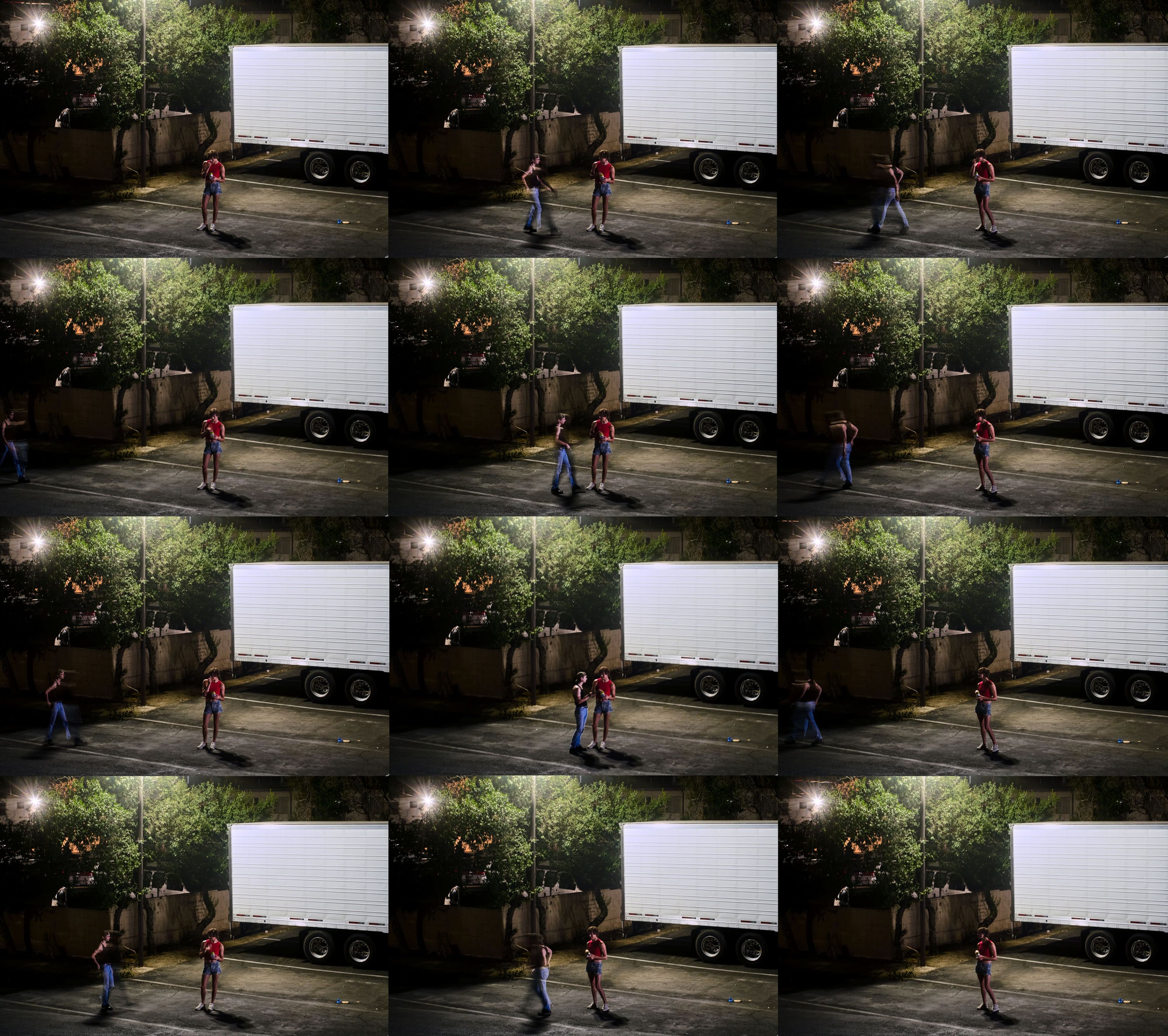
Top by ERL. Shorts by Loewe. Vintage sneakers.
For the first time, Argus also found themself on a set surrounded almost entirely by other queer artists. “The thing that was the most different was the feeling that my queerness wasn’t a hindrance to the production or the character I was playing,“ they explain. “It was an asset, which is something that I’ve always known, but I, unfortunately, have experienced this pressure to perform—even when I’m not in character—as this straight, cis-passing person so as not to ruffle feathers.“ While remaining grateful for every project they have been involved in so far, the actor says they recognized a “distinct difference in working on a set filled with queer people, and them all intrinsically understanding that the queerness is an asset that allows us to do our job better and enhances the storytelling that we’re doing. People just need to broaden their imagination and know that I’m there to do my job, regardless of my identity. On Queer as Folk, it was all encouragement and everyone was being uplifted and respected as a performer and an artist.“
The course of Queer as Folk’s eight episodes deals, in part, with the ramifications and aftershocks of the shooting, which was modeled after the mass murder of fifty people at Orlando’s Pulse nightclub in 2016. After the show’s release in June, it was criticized for trafficking in the trope of queer trauma, but the continuing murders of members of the queer community, especially transgender people of color, and countless examples of homophobia and microaggressions offer constant reminders that “queer existence in America is not fully divested from trauma at this point,“ Argus notes. “I feel like there are a lot of people in cities, queer folks even, who forget that the threat of violence is still very real for a lot of queer folks in America. What Stephen and the Queer as Folk team wanted to do with this is remind people that while the threat of violence still exists for queer folks, that doesn’t mean that our light is any dimmer. We can still come back from that pain and aggression and find love and find joy.“
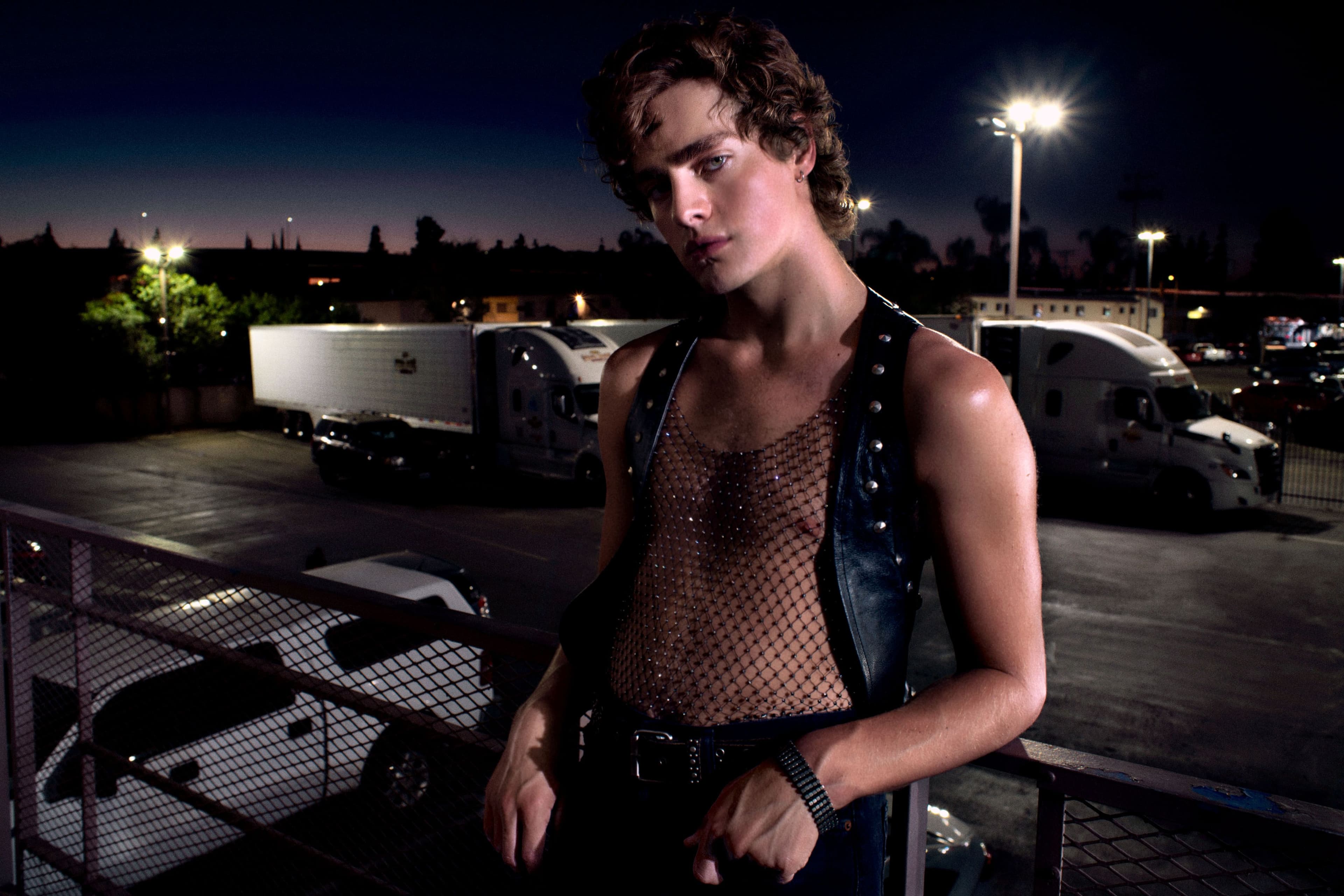
Vintage vest and bracelet. Top by Saint Laurent. Shorts by AGOLDE. Boots by Alexander McQueen.
Alongside Queer as Folk, Argus also recently starred in the film Stay Awake, which premiered in February at the Berlin International Film Festival, as the son of a woman, played by Chrissy Metz, who is addicted to prescription drugs. In focusing on the effects of her addiction her two children rather than vilifying her for her illness, the film, which was written and directed by Jamie Sisley, offers what Argus says is a more humanizing approach to a crisis that is often neglected even while it claims the lives of thousands of Americans. “I’ve gotten in the habit of attaching to projects that are about really heavy things because I like telling stories that mean something and maybe have a positive impact by sharing a new perspective,“ they say. “That being said, right now I am tired, so while I do love telling those types of stories, I think what I’ve learned is I need to punctuate that with stuff that is a little more manageable.“
To that end, they’re currently about to begin production on a comedy and say a “little Cartoon Network moment“ would be a dream project in the future. “I need to be mindful of the emotional substance of the acting projects I take on because inevitably it affects my own psyche,“ they add. “I think I’ve gotten pretty good at creating boundaries between my personal life and whatever project I’m working on, but it creeps in. If that’s the thing that you’re thinking about every day and your job’s to go to these really emotional head spaces, it’s going to have an effect on you.“ Their solution has been to focus only on those projects that truly resonate with them: “I think I have learned at this point in my life I just need to conserve my energy and help tell those stories when I feel truly compelled to and I feel like I have the emotional space to do so.“
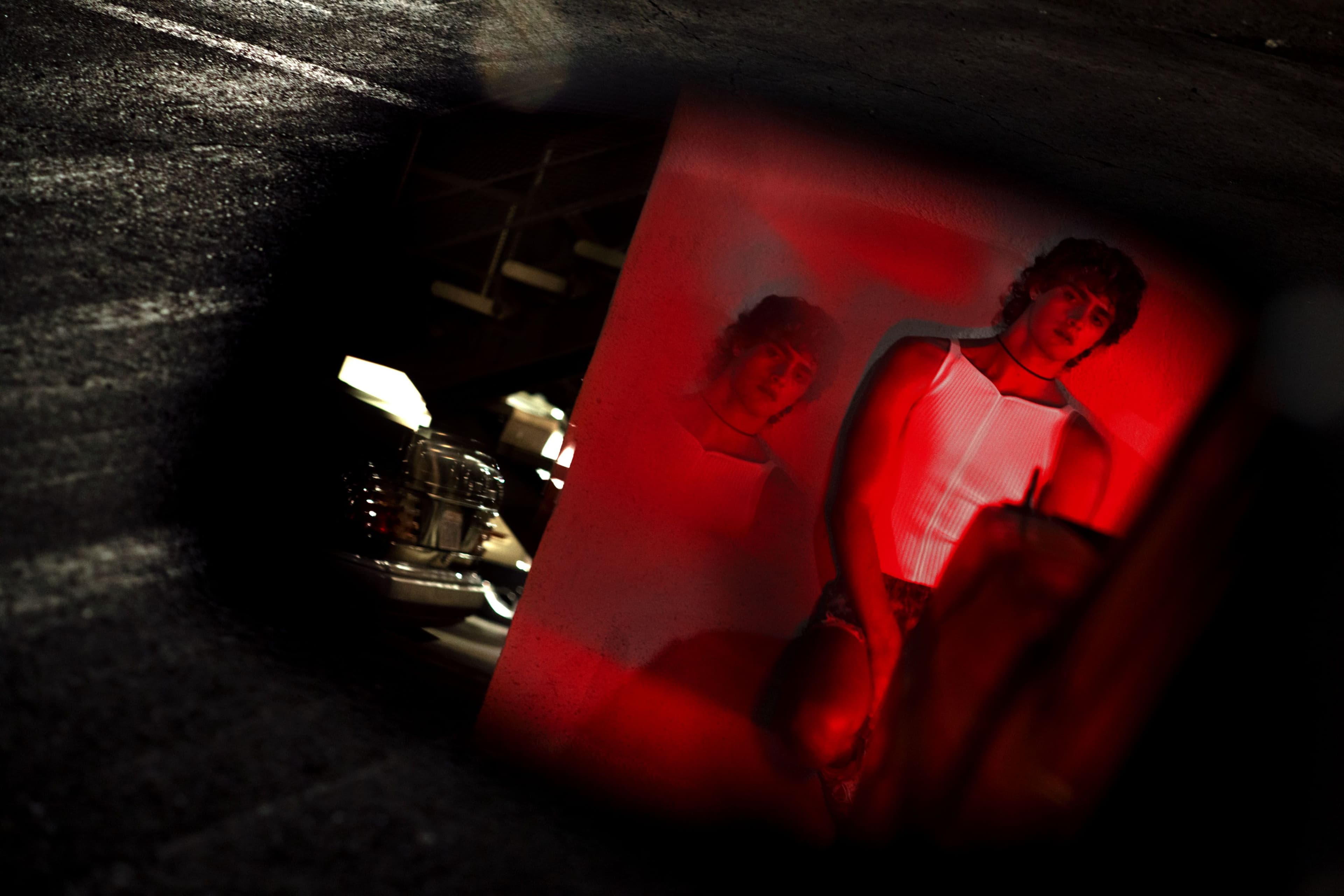
Top by Courrèges. Shorts by Loewe. Necklace, stylist’s own.
Argus has also spent much of this year focusing on their music, releasing their latest single “Exposure,“ about the pressures of social media, in August. Five years after their first EP, they say their new work reflects that half-decade of personal growth. “I wasn’t publicly out at the time I released my last EP and I was writing a lot of songs that were very metaphorical and were hinting at my queerness, which I convinced myself that that’s what I wanted,“ they recall. “But frankly, I needed to take a step back and figure out what I really wanted to say without the pressure of a potential audience, so I took a lot of time off from releasing music to figure out what I wanted to say when I wasn’t thinking about how it would be received.“
The time away also allowed them to reimagine their music as a release for themself rather than a responsibility to their listeners. “I think it was a great idea because now I’m more confident than ever in who I am and my voice,“ they add. “I am also a lot more divested from the reception of whatever I put out. I’m making this music for myself and I’m going to put it out and people are going to have their relationship to it. And that’s truly none of my business.“
Moving forward, whether it be comedy or drama, Argus says that they are ready to expect more from themself and their collaborators after the “huge paradigm shift“ of working on Queer as Folk. “It felt so liberating and I didn’t know that that was possible,“ they add. “I’m really grateful I was able to experience that because it helped me understand that I can hold these sets that I’m working on to a higher standard. That is possible, that uninterrupted respect, and I feel more emboldened to stand up for myself and not water down who I am.“
Queer as Folk is now streaming on Peacock. Read this story and many more in print by preordering our fifth issue here.
As a nonprofit arts and culture publication dedicated to educating, inspiring, and uplifting creatives, Cero Magazine depends on your donations to create stories like these. Please support our work here.
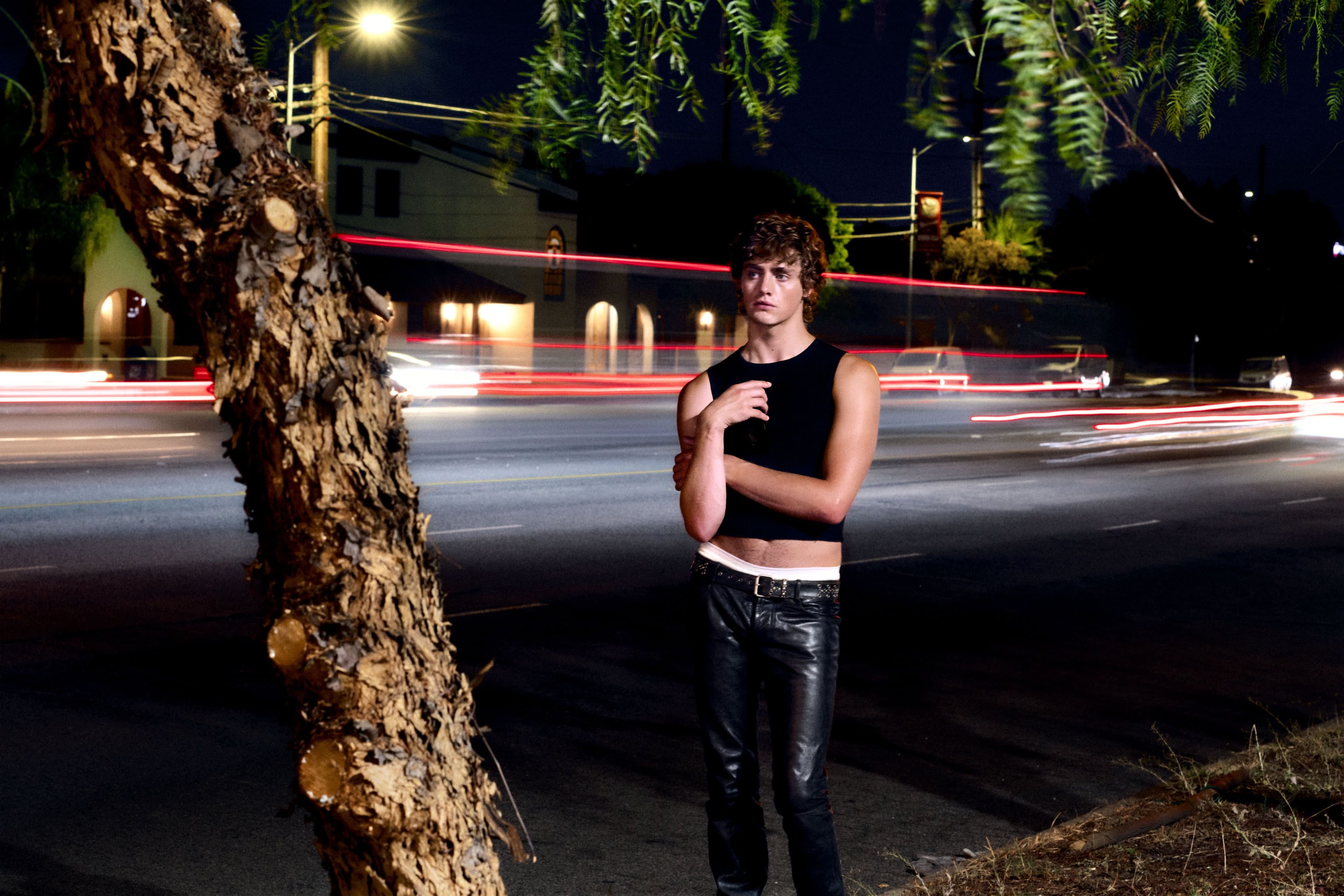
Vintage top by Rick Owens. Pants by Balenciaga. Underwear by Jockey. Belt and bracelet, stylist’s own.
As a nonprofit arts and culture publication dedicated to educating, inspiring, and uplifting creatives, Cero Magazine depends on your donations to create stories like these. Please support our work here.






